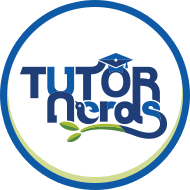High School Tips: Recognize a Legitimate Research Source


Every high school student will write a research paper and research class assignments and projects. One of the biggest problems students face in the digital age is determining which sources are legitimate and which are not. In years past, students could visit the library and speak to a librarian who could point them towards the right types of sources for any given topic, but today students conduct most of their research online. The vast majority of legitimate academic sources are available in the digital world. However, there are also some sources with authors who are writing their opinion as fact. This means that students come across articles and books where the author has no specific credentials and doesn’t cite the source of their information. Luckily, there are several ways students can recognize a legitimate research source to use in an assignment – Our private Orange County high school tutors are here to help you with your next research paper.
The first thing students can do is look up the author’s credentials to see if they’re qualified to write about a particular subject. For instance, if a student is writing about biology and the author is a professor of biology with a Ph.D. in the subject, then they’re likely qualified to discuss their opinions on the subject. However, that same author may not be qualified to write about other topics such as art history or exercise science. An author can be legitimately qualified in one field but not others.
As students begin to research they’re encouraged to maintain a list of legitimate sources. Established newspapers and news reporters might be able to write on some topics, and some newspapers may hire several qualified staff writers who report the news. Some news sources are more legitimate than others or have been around longer and have a better reputation. As students begin to create their list, they’re encouraged to consult an educator who can help them get started. Once students know which sources are almost always legitimate, it’ll make their research efforts more efficient.
It’s OK for an author to write an argumentative piece where they insert their own opinion into the article. However, they should always be upfront that this is their opinion and not a fact. Additionally, if a student is reading an argumentative piece by one author, they’re encouraged to read text by another author who holds the opposite opinion. When neutrality isn’t possible, it’s best for students to read about both sides of an argument. Determining which pieces are argumentative and which are factual is a skill that students will learn over time from their classes or when working with a supplemental educator.
Many students ask if the sources they have found are appropriate but can’t quite figure out how to answer the question without guidance. They might be reading a text by a new author or publisher, or they may be unsure if they can confirm the facts in the article. The best way for students to determine legitimacy is to confirm the facts from a second trustworthy source. If students cannot confirm the fax elsewhere, it’s possible they’re reading somebody’s opinion or a personal blog rather than a reliable news or research source (READ: 5 Tips for Success in English Class From an Orange County English Tutor).
Many students complain that they just can’t find any good sources for a research paper. Some topics are more challenging than others, but there are always sources out there to be found. Students may need to work on improving their research skills, in particular, learning how to conduct internet research. Some highly academic papers require a trip to a brick-and-mortar library to find journals that aren’t found online. Many students simply Google a topic hoping to find valuable information (and in many instances they can), but some subjects will require students to know where to look so they may need to speak to their teacher or tutor for guidance before they get too far in the process.
Having trouble with your research paper? Our experienced Orange County English tutors are here to help. Call us today for more information.
100% Satisfaction Guarantee
You’ll love your tutor, or you don’t pay.

We will evaluate your situation and answer any questions. We will then individually match you with one of our tutors. Your tutor will recommend the best strategies for you based on your goals. You’ll work with the same tutor ongoing and you can schedule directly with your tutor.
100% Satisfaction Guarantee – You’ll love your tutor, or you don’t pay
| Cookie | Duration | Description |
|---|---|---|
| cookielawinfo-checkbox-analytics | 11 months | This cookie is set by GDPR Cookie Consent plugin. The cookie is used to store the user consent for the cookies in the category "Analytics". |
| cookielawinfo-checkbox-functional | 11 months | The cookie is set by GDPR cookie consent to record the user consent for the cookies in the category "Functional". |
| cookielawinfo-checkbox-necessary | 11 months | This cookie is set by GDPR Cookie Consent plugin. The cookies is used to store the user consent for the cookies in the category "Necessary". |
| cookielawinfo-checkbox-others | 11 months | This cookie is set by GDPR Cookie Consent plugin. The cookie is used to store the user consent for the cookies in the category "Other. |
| cookielawinfo-checkbox-performance | 11 months | This cookie is set by GDPR Cookie Consent plugin. The cookie is used to store the user consent for the cookies in the category "Performance". |
| viewed_cookie_policy | 11 months | The cookie is set by the GDPR Cookie Consent plugin and is used to store whether or not user has consented to the use of cookies. It does not store any personal data. |

